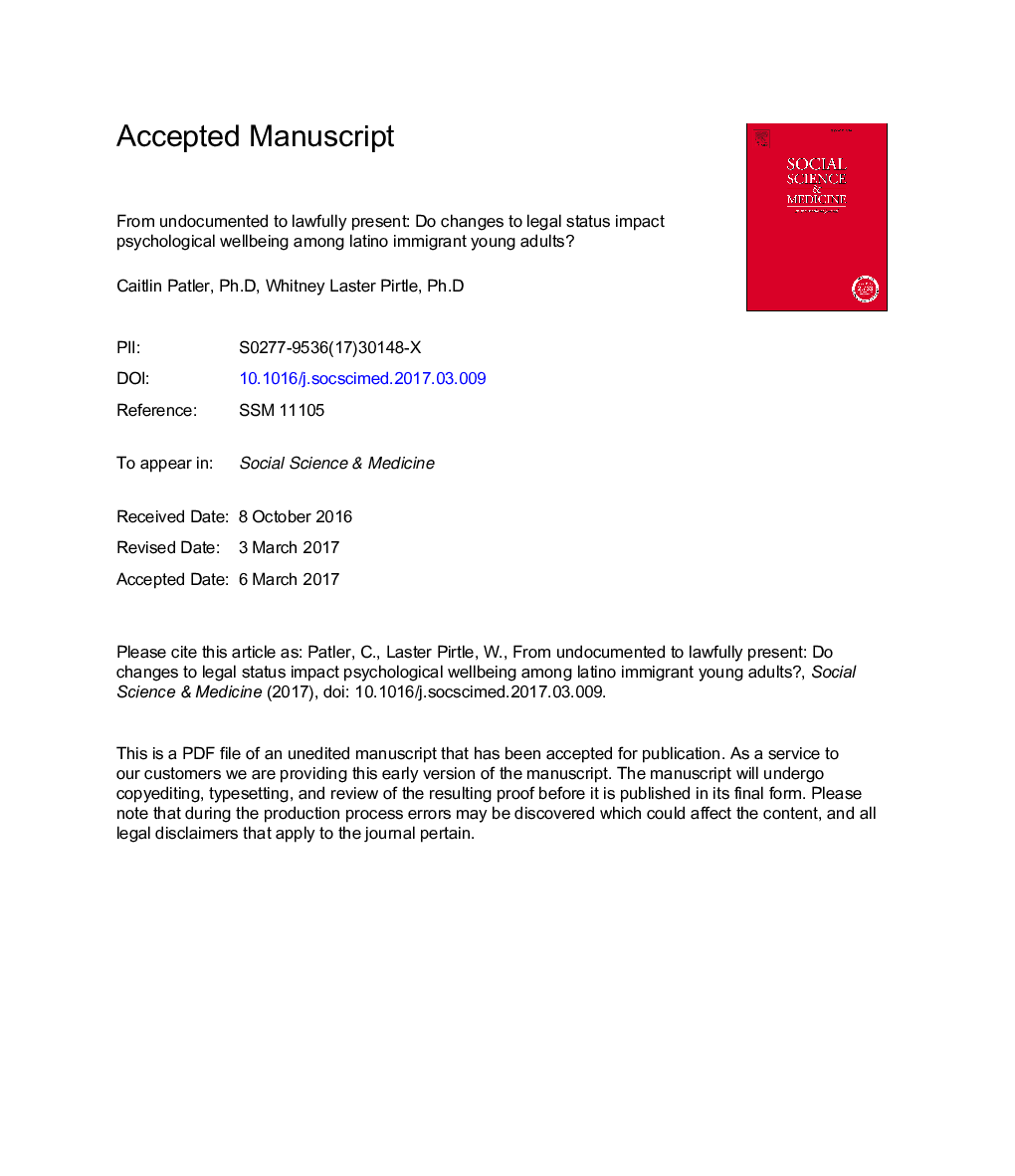| Article ID | Journal | Published Year | Pages | File Type |
|---|---|---|---|---|
| 7328490 | Social Science & Medicine | 2018 | 38 Pages |
Abstract
Exclusionary immigration policies, as a form of structural racism, have led to a sizeable undocumented population that is largely barred from access to resources in the United States. Existing research suggests that undocumented immigration status detrimentally impacts mobility, yet few studies have tested the impacts of legal status on psychological wellbeing. Most importantly, we know little about how changes to legal status impact wellbeing. Announced in 2012, the Deferred Action for Childhood Arrivals (DACA) program allows eligible undocumented youth to apply for temporary lawful status. Drawing on cross-sectional survey data from 487 Latino immigrant young adults in California collected in 2014 and 2015, we analyze the predictors of three specialized outcomes related to immigrants' psychological wellbeing-distress, negative emotions, and deportation worry before and after a transition from undocumented to lawfully present status. Results show that retrospective reports of past psychological wellness, when all respondents were undocumented, are predicted primarily by socioeconomic status. However, reports of current psychological wellness are predicted by DACA status. Our results demonstrate, for the first time, the positive emotional consequences of transitioning out of undocumented status for immigrant young adults.
Related Topics
Health Sciences
Medicine and Dentistry
Public Health and Health Policy
Authors
Caitlin Ph.D, Whitney Ph.D,
